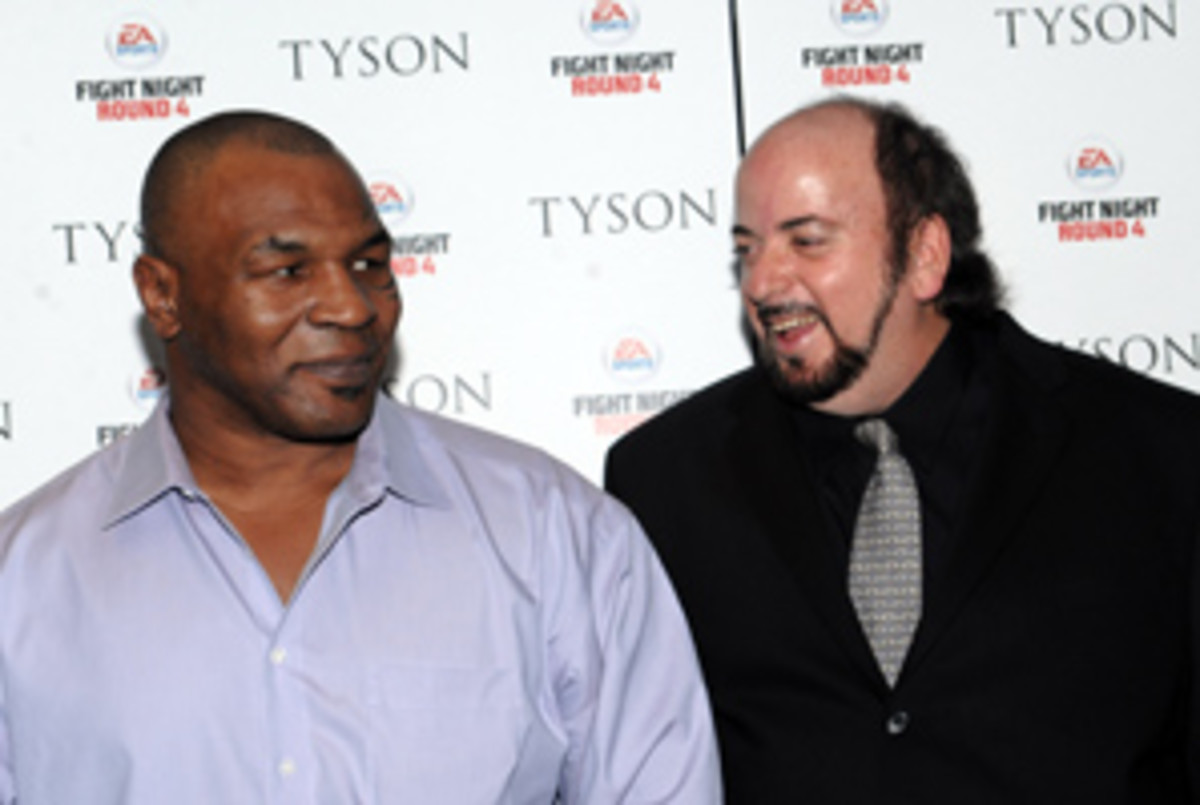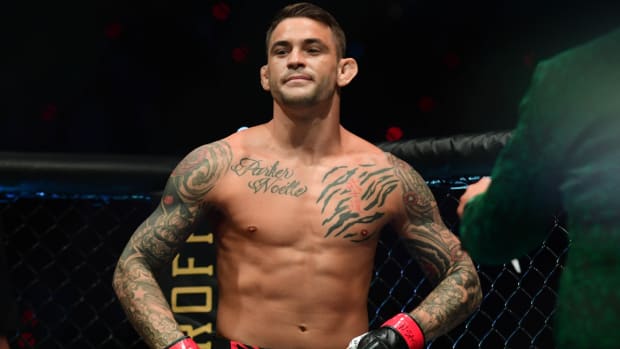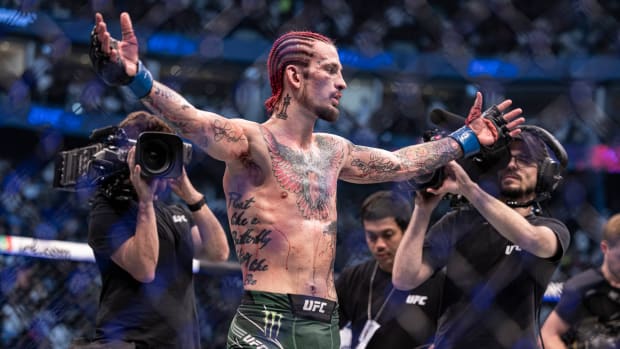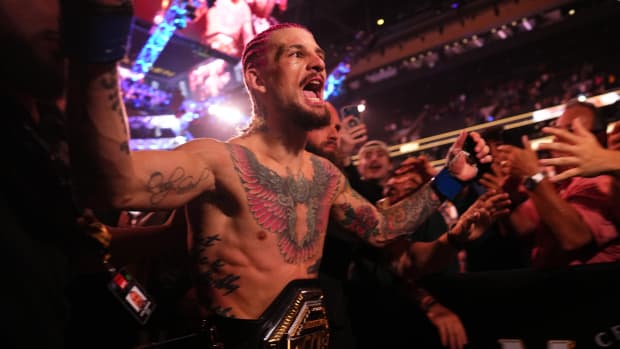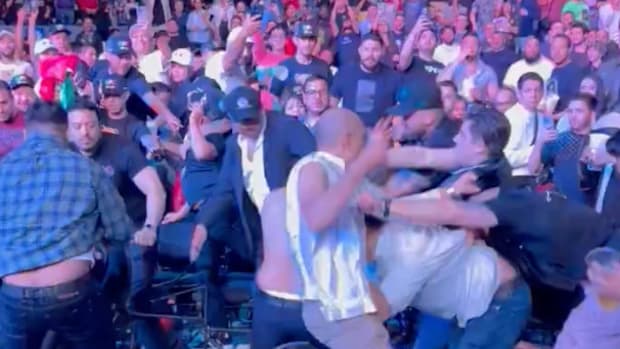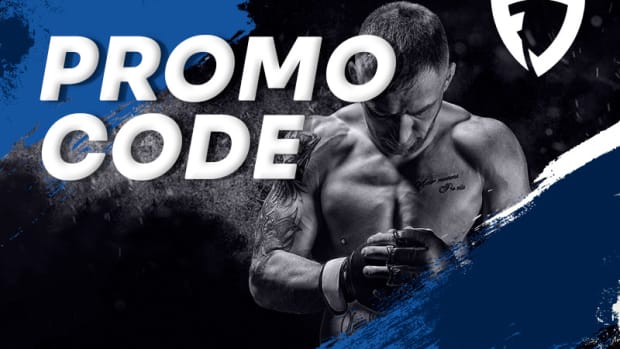Q&A with Tyson director, James Toback
Filmmaker James Toback met Mike Tyson before he had won his first heavyweight title. It was 1985, Tyson was 19 and they spent an early morning walking through Central Park, talking about madness. Toback maintained a relationship with the champion boxer through two decades of extreme highs and lows. When Tyson entered rehab in 2007, he agreed to let Toback interview him on camera, for what would become Tyson, a new documentary in theaters April 24.
SI.com: What do you and Tyson have in common?
Toback: I think we have a lot in common, psychologically. I would say that I've never had a conversation with him -- I'm pretty sure that he would say the same -- in which either of us would say, "I don't get it" about the other. In other words, there's an ongoing sense of identification on some deeper level. It may [seem like it] to other people, but nothing seems beyond comprehension.
SI.com: Mike Tyson talks quite a bit in the film about straddling the line between sanity and insanity. Where would you say he stands most of the time?
Toback: I think he is functioning in a day-to-day sane fashion. He has found a way of maintaining the behavioral essence of sanity. I think that, internally, like anyone who has experienced madness, it's an ongoing uncertainty about what will happen next. There's been too much of the unexpected, historically, ever to reach a point where you can say, "Now things are settled," because you know that they're never settled, and that they're never going to be settled. I think certain people, and I consider myself among them, get on a certain track in life, and you basically say, "Well, after a certain age, this is my lot." And you kind of adjust to it and function within it and accept it rather than say, "What is going on here?"
SI.com: What part of his story affects you the most?
Toback: Oh, I would say that the end is definitely the most affecting. The very last moment of the film. It's the natural conclusion of everything that's come before, and I think that gives you a really kind of haunting picture of someone who has accepted his own destiny and comes to terms with it, is at peace with it, which is the key thing for all of us to do because it's the only thing we know is going to happen.
Everything else is possible, that's definite. To reach a point where you genuinely accept it ... that understanding, and I'm not talking about it as an intellectual exercise, but rather as a serious, ongoing, viscerally felt reality -- that is manifest in a very powerful way right at the end.
SI.com: Does he have a strong sense of failure?
Toback: Only I would say letting himself down, not living up to the standard or the possibility. I don't know if failure in life is a thought that occurs to him. I think he genuinely thinks at this point that things are actually a lot better than they've been, just in terms of relative peace of mind. I think at this point, he's pretty much withdrawn, although it's certainly an ongoing danger, as it is with all addictive people.
SI.com: What brought on the change?
Toback: He crashed, and when you crash, it's tough to keep the delusion going. You just say, "I think this is it." Some people resist it for a long, long time. In his last arrest, I think going to rehab was a huge step in that direction because rehab is not a 12-step program -- it's a removal from society.
You basically have been either removed or have removed yourself from the social order and said, by definition, "I can't handle this," which is a pretty powerful admission to make. As opposed to going to 12-step everyday, you're going and you're deciding that you're going to go. No one's keeping you in the room. No one's stopping you from saying, "I think I changed my mind." Whereas once you're in, you're in.
"Never having done it myself, I think that has to be a pretty dramatic change in your view of yourself. That's the real turning point, to me. I would not have predicted that he would ever reach a point where this was something he was going to do. It's something that only could have happened after really going through the mill, over and over again. Of course, being in prison is a pretty powerful example of it. Being in prison is a breeding ground for drugs, so if your addiction is pharmacological, that's just another place to do it.
SI.com: Is that what happened to him?
Toback: I don't know how much he [used] while he was there, but I know that certainly he was doing it when he got out, so that the commitment not to do it obviously wasn't there. That, I think, was the big change and the big deal: to say, "I'm powerless in the face of this addiction." It's a pretty powerful statement, saying you are powerless.
SI.com: It seems to me like he has no capacity to defend himself emotionally, which leaves him wounded.
Toback: I think that's why he tends to strike out the way he has. I think it's a response to that.
SI.com: He's expressed his deep discomfort in watching the film, his embarrassment. Does he get angry with you?
Toback: No, not at all. He wanted to do it. Of course he's going to feel that. How can you not? It's a completely devastating portrait of a tragic figure. You almost have to feel that, I would think. It was something he wanted to do, and he certainly wouldn't want to undo it now.
SI.com: Would you say that he cares about the way he is perceived publicly?
Toback: He says he doesn't care what people think, and I think, to a degree, he doesn't. He says what he wants. It's basically take it or leave it. But I think he does care. He obviously cares. Let's put it this way: He's obviously affected by it. No question about that. He's affected by it in a very tangible way. How can you not be? Standing ovation as opposed to people booing you? You'd have to be a brick not to let it affect you.
SI.com: Carmelo Anthony is an executive producer. How did he get involved?
Toback: Carmelo was approached by David Bingham through David Haines, who is Carmelo's guy. Carmelo saw the movie, loved it, and said he would love to help out, which fortunately, he did. I had started to run out of my own investment money and we were in a real bind. I don't even like to think what would have happened otherwise.
SI.com: What are James Toback's essential Tyson moments?
I think the great moment, and the most spectacular, was the knockout of TrevorBerbick, when he won the title. The worst moment was the last moment, which is in the film, in which he ends up on his stool after having basically surrendered to a fighter whose -- to put it charitably -- relationship to boxing was peripheral. That's the Kevin McBridefight.
SI.com: What will the rest of Mike Tyson's legacy look like?
Toback: I think that's impossible to say, you know? Apart from the fact that it is with anybody, but in his case in particular, the nature of the temperament is such that at any given moment, nothing would be surprising. With most people, you can find a laundry list of things you can say that about. With him, I think it'd be very difficult to come up with something that made you feel that way. That being the case, anything is possible, nothing is unlikely. I think that's one of the things that makes the guy very intriguing to people. It's an extreme emblem of the human condition itself.
MORE TYSON
GRAHAM:Documentary on Tyson is simply extraordinary
GALLERY: Iron Mike through the years
VIDEO:Clip from the Toback film "Tyson"
VAULT: Best stories of Mike Tyson
